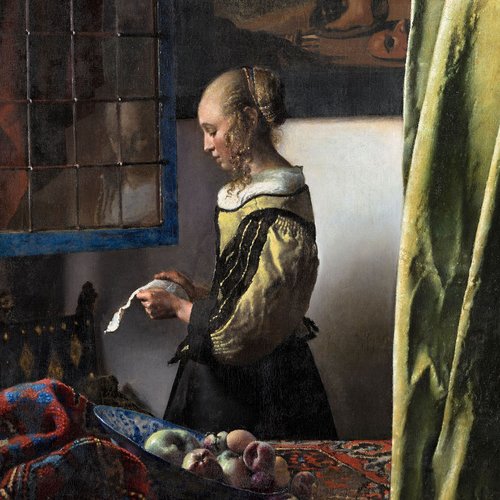Prof. Dr. Doreen Mende takes over as head of research at Staatliche Kunstsammlungen Dresden
05 November 2021Prof. Dr. Doreen Mende takes over as head of research at Staatliche Kunstsammlungen Dresden
Doreen Mende takes over as head of the research department at Staatliche Kunstsammlungen Dresden (SKD). She takes up the position with immediate effect.
Mende has previously worked internationally as an independent curator and theorist. Since September 2015, she has acted as a professor and director of the research-based Master’s programme and PhD forum CCC (Critical Curatorial Cybernetic Research Practices) at the Visual Arts Department of HEAD Genève – the University of Art and Design in Geneva, Switzerland, alongside her position as an associate member of the Dutch Art Institute. Her work on the project “Das ganze Leben” with Haus der Kulturen der Welt (HKW) and the association Arsenal – Institute for Film and Video Art in Berlin first brought her into contact with the SKD back in 2019.
Brought up in Zürchau, in the German region of Thuringia, Mende enrolled at Leipzig’s “Felix Mendelssohn Bartholdy” University of Music and Theatre on a scheme for gifted and talented youth, graduated in 2000, then joined the Documenta11 training programme run by Okwui Enwezor (among others) at the University of Kassel. After collaborating in projects and taking on lectureships in New York, Karlsruhe, Belgrade, Ramallah, Tel Aviv-Yafo and Addis Ababa, in 2015 Mende earned a doctorate in Curatorial/Knowledge from the Visual Cultures Department at Goldsmiths, University of London, studying the geopolitics of exhibiting practices, and specifically the production of (photographic) archives and images.
In 2009 (along with Markus Heinzelmann), Doreen Mende received the Justus Bier Award for Curators for exhibitions with Candida Höfer and Kuehn Malvezzi Architects in Morsbroich, Vigo and Seville. In 2011 she was elected to the first international research fellowship at the Arab Image Foundation in Beirut.
Mende has published with MIT Press, the e-flux Journal, Archive Books, Jerusalem Quarterly, the PARSE Journal and for the Oxford Handbook of Communist Visual Cultures (2020). The publications Double Bound Economies: On Reading a Photographic Archive from the GDR (with Estelle Blaschke and Armin Linke) and Travelling Communiqué (with Kodwo Eshun and Milica Tomić) were issued by Spector Books, Leipzig.
Mende has co-founded the Harun Farocki Institute in Berlin (with Tom Holert and Volker Pantenburg), the European Forum for Advanced Practices (funded by the organisation European Cooperation in Science and Technology) and Multiple Artistic Mobilities (with Bärbel Küster) at the University of Zurich.
Since 2019, she has headed a research project funded by the Swiss National Science Foundation at HEAD Genève – “Decolonizing Socialism. Entangled Internationalism” – in cooperation with the University of Basel, the Exit Frame Collective, Kunstverein Leipzig, the Van Abbemuseum and the HKW Berlin, www.entangledinternationalism.org.
Marion Ackermann, Director-General of Staatliche Kunstsammlungen Dresden: “I am delighted that Doreen Mende will be taking the helm at our research department, which Gilbert Lupfer leaves in such an excellent situation. Her strong family connections with both Thuringia and Saxony since her childhood mean she is familiar with the special historical circumstances here. With her approach of combining exhibiting theory and practice, she will revitalise the profile of research at the SKD.”
Doreen Mende, head of the research department at Staatliche Kunstsammlungen Dresden: “It is a great pleasure to me to be taking up the baton of research practice at Staatliche Kunstsammlungen Dresden, as both a geopolitical and a transdisciplinary configuration and in connection with local and international debates on forms of knowledge in the 21st century. I intend to add further depth to the existing approach of provenance research used across the collections, enriching it by applying new methods from curatorial research to the issues of unfinished historical processes and politics of remembrance in the period after 1989. Another important task falling to me will be continuing our work with students.”
